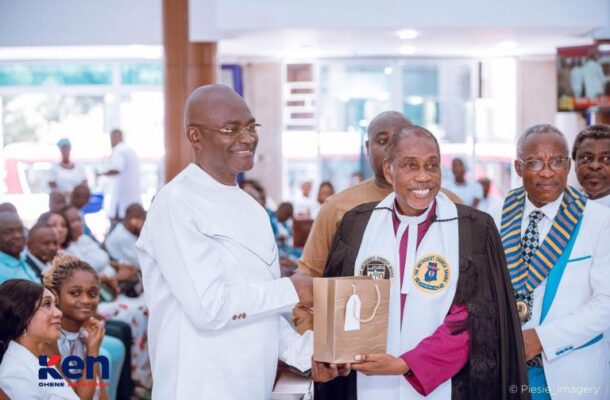By Nana Yaw Prekoh
Let no one blackmail us into silence. The reality remains that Ghana’s political space continues to be heavily shaped by voting patterns rooted in ethnic and religious identities. These factors have long dictated our political discourse, influenced candidate selection, and determined electoral outcomes. We see it time and again how politicians actively court endorsements from religious groupings, while others exploit ethnic sentiments to tilt the political scales in their favour.
What is even more troubling is the glaring hypocrisy that emerges when the very individuals who benefited from identity-driven politics suddenly turn around to position themselves as crusaders against tribalism and religious politics when the tables turn.
I give you three clear examples of this contradiction, drawn from events leading up to the 2023 NPP presidential primaries, where certain candidates blatantly weaponised religion and ethnicity for political gain.
First was the so-called Dombo lineage argument, where an individual with no ancestral or ethnic ties to Dombo was conveniently positioned as the only rightful successor of Dombo, obviously under the guise of a non-existent rotational leadership theory. This was a calculated and deliberate exploitation of regional and tribal sentiments designed solely to manipulate the contest in favour of one person.
Second was the infamous De-Akanization narrative, pushed by this same camp, which suggested that only a particular candidate could rid the party of its so-called “Akan tag.” This narrative was cleverly marketed alongside the claim that this candidate alone could broaden the party’s appeal in the Northern parts of Ghana. But again, this was nothing but a veiled ethnic manipulation strategy.
And third, the Zongo Vote Promise; a narrative sold to the party that electing a specific candidate as flagbearer would automatically guarantee overwhelming support from Zongo communities. Yet, the electoral outcome we all witnessed completely exposed the hollowness of that campaign, delivering the poorest Zongo electoral results in our political history.
Against this backdrop, it will be dishonest for anyone to pretend that religion and ethnicity do shape voter behaviour in this country. The 2024 Global InfoAnalytics Voter Survey, for instance, revealed that religion alone accounted for 30% of voter apathy in the Ashanti Region. Nationally, 11% of voters indicated that their voting decisions are directly influenced by religious considerations.
Similarly, the Afrobarometer Round 9 (2022) Ghana report reinforces this reality, with 18% and 21% of Ghanaians admitting that ethnicity and religion, respectively, influence their voting decisions.
From these accounts, it is not only disingenuous but downright hypocritical for anyone to now play the victim when they are called out for the same identity-based politics that once conveniently served their ambitions.
Beyond the accountability call, we must be bold to confront the broader reality that religion and ethnicity undeniably shape voter behaviour in Ghana. These factors influence party alignments, public perceptions, and electoral outcomes. To deny this truth or shy away from honest conversations for fear of being labelled is not only dishonest, it is a disservice to our democracy. Let no one blackmail us into this calculated silence!
